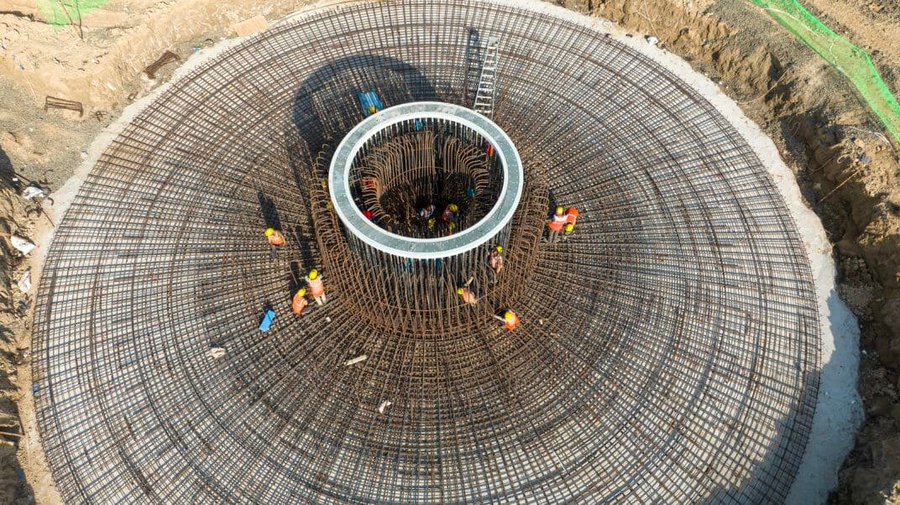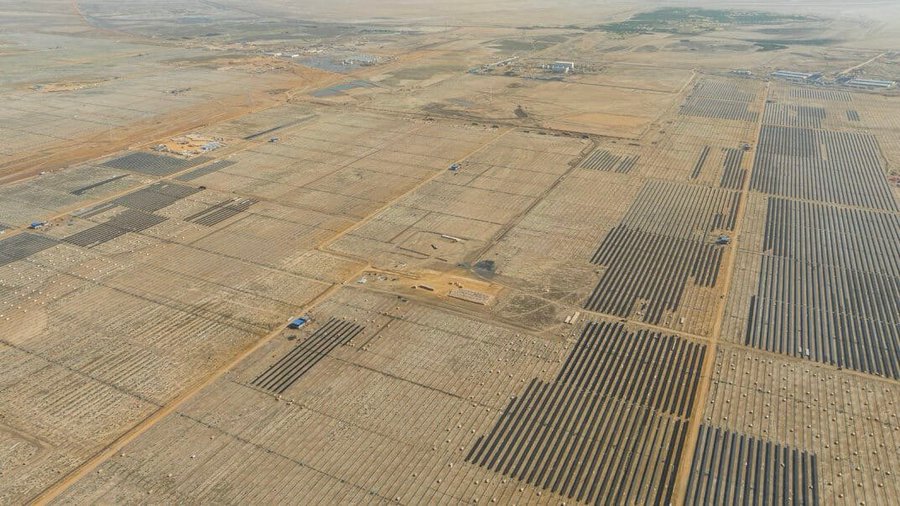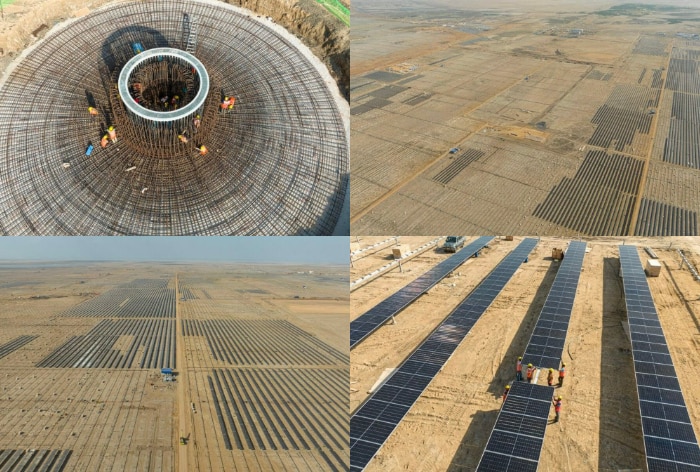This Adani Group project is expected to add to India’s green energy capacity, besides helping in reaching its climate action pledges it made at COP. India committed to an ambitious five-part “Panchamrit” pledge at COP26, held in 2021.
New Delhi: In an ambitious stride towards sustainable energy, India is constructing what is said to be the world’s largest renewable energy project in the Rann of Kutch in Gujarat. Taking to his social media platform X, Adani Group Chairman Gautam Adani on Thursday shared the pictures of the project which will be covering a vast 726 sq km land mass that will generate 30 GW to power over 20 million homes, he said.
Adani expressed pride in contributing significantly to India’s renewable energy advancements and highlighted that the project is even visible from space. “Proud to play a crucial role in India’s impressive strides in renewable energy as we build the world’s largest green energy park. This monumental project, covering 726 sq km in the challenging Rann desert, is visible even from space. We will generate 30 GW to power over 20 million homes.”
The group chairman, along with the X post, shared a few pictures where the ongoing large-scale project could be seen taking shape.

“Also, just 150 km away, in our karmabhoomi Mundra, we are creating one of the globe’s most extensive and integrated renewable energy manufacturing ecosystems for solar and wind. This marks a significant milestone in India’s journey towards sustainable energy, underlining our commitment to the Solar Alliance and the Atmanirbhar Bharat initiative.”

This Adani Group project is expected to add to India’s green energy capacity, besides helping in reaching its climate action pledges it made at COP. India committed to an ambitious five-part “Panchamrit” pledge at COP26, held in 2021. They included reaching 500 GW of non-fossil electricity capacity, generating half of all energy requirements from renewables, to reducing emissions by 1 billion tonnes by 2030.

The Khavda renewable energy park, named after the nearest village to the project site, is a is an example of India’s journey towards an Atmanirbhar Bharat, or a self-sufficient India. The Indian government has estimated the cost of this mammoth project at least $2.26 billion, reflecting the scale and significance of the investment in the nation’s future.

India also aims to reduce the emissions intensity of GDP by 45 per cent. Finally, India commits to net-zero emissions by 2070.

